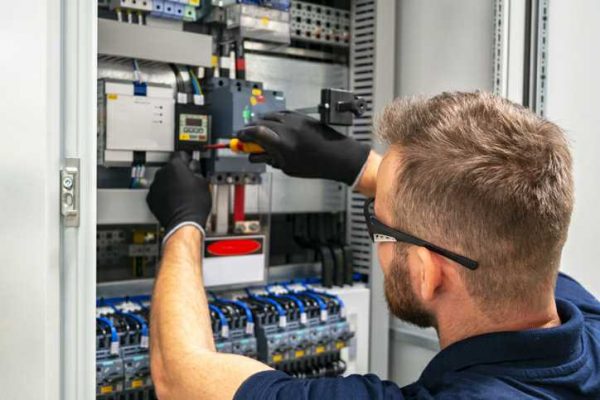
Electricity is present in every workplace, but some workers come in direct contact with it each day. These usually include (but are not limited to) electricians, maintenance workers, construction workers, power plant workers, manufacturers, engineers, and utility workers.
Common injuries caused by electricity
According to Occupational Health & Safety, these are the types of injuries that can result from contact with electricity:
- Electric Shock: When an electrical current travels through a person's body, it can result in damage to the muscles, nerves, connective tissue, and internal organs. The severity of an electric shock depends on the type of current, the intensity and path of the current, the amount of resistance available, and the amount of time exposed to electricity.
- Electric burns: There are four types of burns that can occur when someone makes contact with electricity. These include:
- Flash burns — an arc flash that doesn't pass through the body, but causes surface injuries.
- Flame burns — an arc flash ignites a fire, resulting in burns.
- Low voltage burns — direct contact with electricity at 500 volts or less, effecting the site of contact.
- High voltage burns — direct contact with extremely high voltage that causes damage under the skin and throughout the body.
- Electrocution: This occurs when someone dies as a result of coming into contact with an electric current. Electrocution is listed as one of OSHA's "fatal four" in the construction industry.
How can electricity-related injuries be avoided?
In order to prevent injuries, workers and employers should never cut corners when working with electricity. Best practices when working with electricity include:
- Following all local, state, and federal regulations regarding electricity
- Ensuring that workers are provided with personal protective gear
- Ensuring that workers are trained and warned about the dangers of working with electricity
- Surveying work sites for potential electric hazards and high-voltage areas
- Protecting switches and circuit-interrupting devices
- Following proper lockout/tagout procedures outlined by OSHA
- Inspecting power tools and equipment before using
- Testing circuits before anyone works with them
- Being aware of power lines or underground wires before performing construction
- Training workers on emergency protocols in the event of an incident, such as calling 911 and getting prompt medical attention for an injured worker
How to get workers' compensation if you were injured on the job
If you were hurt on the job due to an electrocution, it's critical that you file an accident report and a workers' compensation claim.
Workers' compensation benefits cover injury losses such as medical bills and lost wages, as well as total and partial disability.
Obtaining these benefits won't be easy, however. That's why you should always consult with an experienced San Diego workers' compensation attorney to handle your claim and ensure that all paperwork is filled out correctly.
To maximize your chances of receiving benefits, contact the McLaughlin & Sanchez and schedule your free case review.
